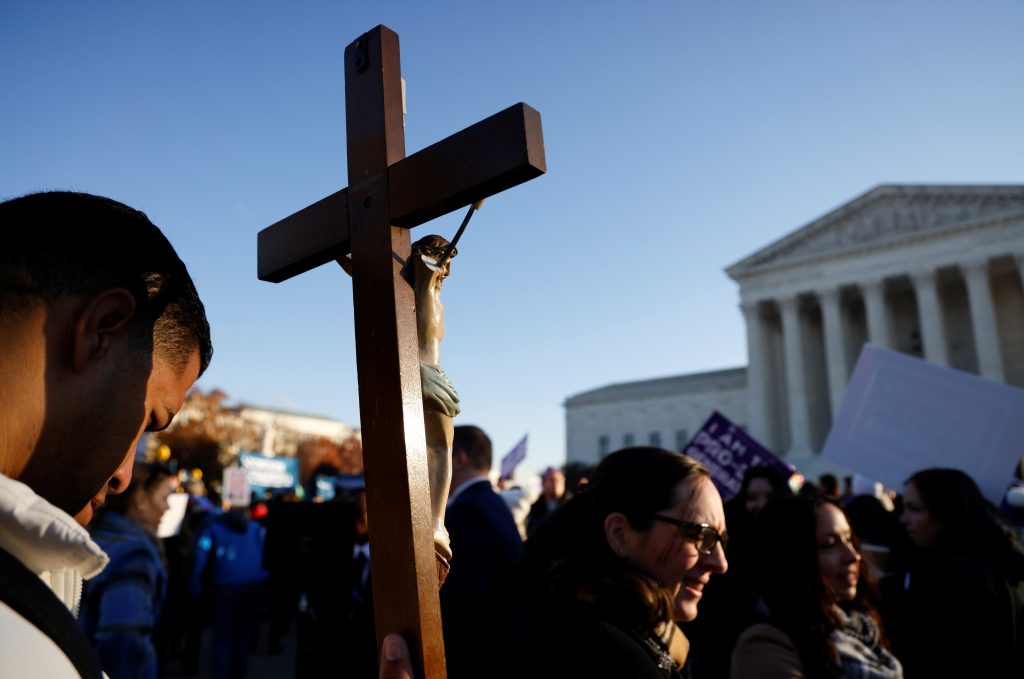There are many different ways to understand human history and the particular time we are living in. One way is to think of it as a relentless clash of cultures.
In his book “The Great Heresies,” the historian Hilaire Belloc contends that the whole history of Europe and the Americas can be read as a series of doctrinal attacks (or heresies) against Western culture as formed by the Christian religion, or, to be more specific, the Catholic Church, its most continuous proponent.
He goes through Arianism, Albigensianism, Mohammedanism, and Protestantism, describing the Church as a citadel with several faces, each face attacked in turn. Each time, the Church defended herself and her doctrines vigorously.
Although the ancient heresies that Belloc details may sound only faint echoes in your mind (I can never quite remember what Arianism was, let alone Albigensianism), the current cultural attack on the Church is one we are all too aware of. Belloc calls it the “modern attack” of secularism.
Unlike earlier attacks or heresies, which were attempts to change men’s religious beliefs, the modern attack is an attempt to stamp out religious beliefs altogether. We are told it’s better to rely on science and technology, to put aside faith as a basis on which to make moral decisions. Human progress will be achieved when the secularist culture triumphs, and moral decisions can finally be made from a purely evidence-based and materialist perspective.
Since the fateful Dobbs decision by the Supreme Court, which overturned Roe v. Wade and opened the door to the regulation of abortion at the state level, the secularist modern attack has gone nuclear. The unthinkable (to them) has happened: the absolute right to abortion as an essential backstop to sexual liberation is gone. Now American women and men, many of them informed by their Catholic faith and bolstered by the ancient and powerful institution that is the Church, will be allowed to protect the unborn through the democratic process.
The secularist pro-choice left understands that it is being denied unfettered abortion (something they consider an unalloyed good by materialist standards) by people caught up in the toils of faith — men and women who believe the Gospel message of radical solidarity with our littlest brothers and sisters.

After decades of attack in which America has become steadily more secular, religion more marginalized, and the public square more denuded of Christian morality, pro-life believers suddenly have a victory. The secularists are enraged — at democracy, at the Supreme Court, and yes, at the Catholic Church. The result has been violence, arson, and vandalism against churches, incited by ugly rhetoric about “handmaids” and looming theocracies. The direct attacks on churches seem to be inspired in part by the fact that five of the six justices belonging to the court’s “conservative majority” are Catholic.
As each Western institution has been captured by secularist culture, the last great holdout is the Catholic Church. Only the Church proposes with any intellectual coherence and organizational power that the dignity of man is indeed inviolable, and that this imposes restraints upon man that benefit him individually and collectively.
If unfettered abortion can be snatched away from the secularists, what does that mean for the transgender project, which rejects the restraint of biology and acceptance of our bodies as purposefully created? What does it mean for the ever-growing rainbow of sexual license, which has paused briefly, accepting the limit of adult consent, but itching to go further?
We can only expect the attack to increase in intensity and scope, eventually making it impossible for any American Catholic to remain unaffected.
This brings me back to Belloc. It is helpful to me to think of the current predicament as yet another pivotal battle in the Church’s long, complicated history. If she is a citadel, she is thickly walled and stands high on the crest of the tallest mountain. Her turrets rest on foundations as deep as salvation history is long, and each stone of her battlements was laid by the hand of a martyr. On the pointed towers of her halls wave colored flags that herald timeless courage. And from her choir stalls ring harmonious chants from a thousand pure throats.
The secularists, massing disordered on the low plain, don’t stand a chance. The triumphant outcome, after all, has long been preordained. As for us, we are enjoined to battle, yes, but with the inner peace of those who trust perfectly in the providence of God.

